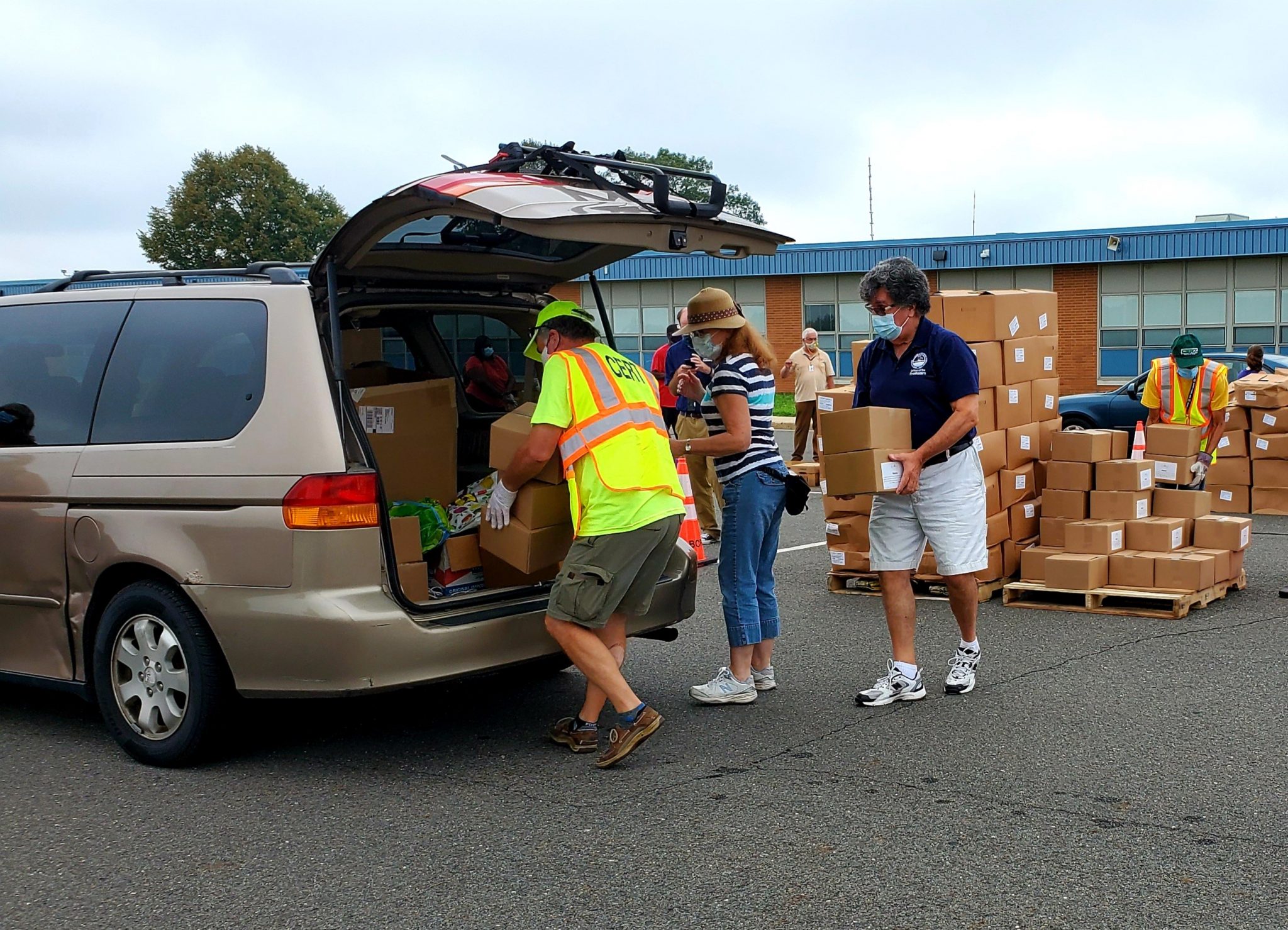Burlington County hosted its 10th food distribution event on Aug. 11 to aid residents struggling with food insecurity during the ongoing coronavirus pandemic.
Over a thousand boxes and bags of nonperishable goods and fresh produce were distributed to more than 300 vehicles during the event at Burlington County’s Westampton complex, according to information provided by the county.
The food was obtained and distributed through a unique partnership between the county and the Food Bank of South Jersey and Farmers Against Hunger.
Since the pandemic’s start, the two nonprofits have helped the county distribute more than 3,000 boxes and bags of food to county households. Funding for the food assistance was also provided by the U.S. Department of Housing and Urban Development and the federal CARES Act.
Each box included corn, sweet peas, pears, mixed fruit, tuna, rice, pasta, milk and rolled oats, and Farmers Against Hunger provided additional supplies of Jersey tomatoes, zucchini and other vegetables, according to the statement.
“No family should have to go to bed hungry or choose between putting food on the table or paying their rent or mortgage,” Freeholder Dan O’Connell, who was among the more than two dozen volunteers at the event, said according to the statement. “These boxes and vegetables can provide that little bit of extra help many families need to get through this difficult time. I’m thankful our county has partners like the Food Bank of South Jersey and Farmers Against Hunger to help provide this assistance.”
The event was the 10th food distribution held throughout the county and the third at the BCIT campus. The others have been held at Mount Laurel, Willingboro, Pemberton Township, Burlington City and Riverside.
More than 1 million New Jerseyans have filed for unemployment during the health crisis and the food bank has reported a more than 200% increase in food demand across the region. And more than 40% of those seeking help are first-time food bank resource recipients, according to the statement.
Even before the pandemic, close to 1 in 8 New Jersey households were considered food insecure, meaning they weren’t certain they would have enough income to be able to afford adequate healthy food, according to the statement.
“This pandemic is the biggest challenge many of us have ever faced before. Whether you’ve lost a loved one to the disease or a job or income because of it, we’ve all been impacted in ways large and small,” O’Connell said in the statement. “I’m proud that our county is stepping up to help our residents through this difficult time. From standing up COVID-19 testing sites and finding protective equipment for our long-term care communities to ensuring that families have food for their families, we’ve strived to be there for our residents when they need their government most.”

